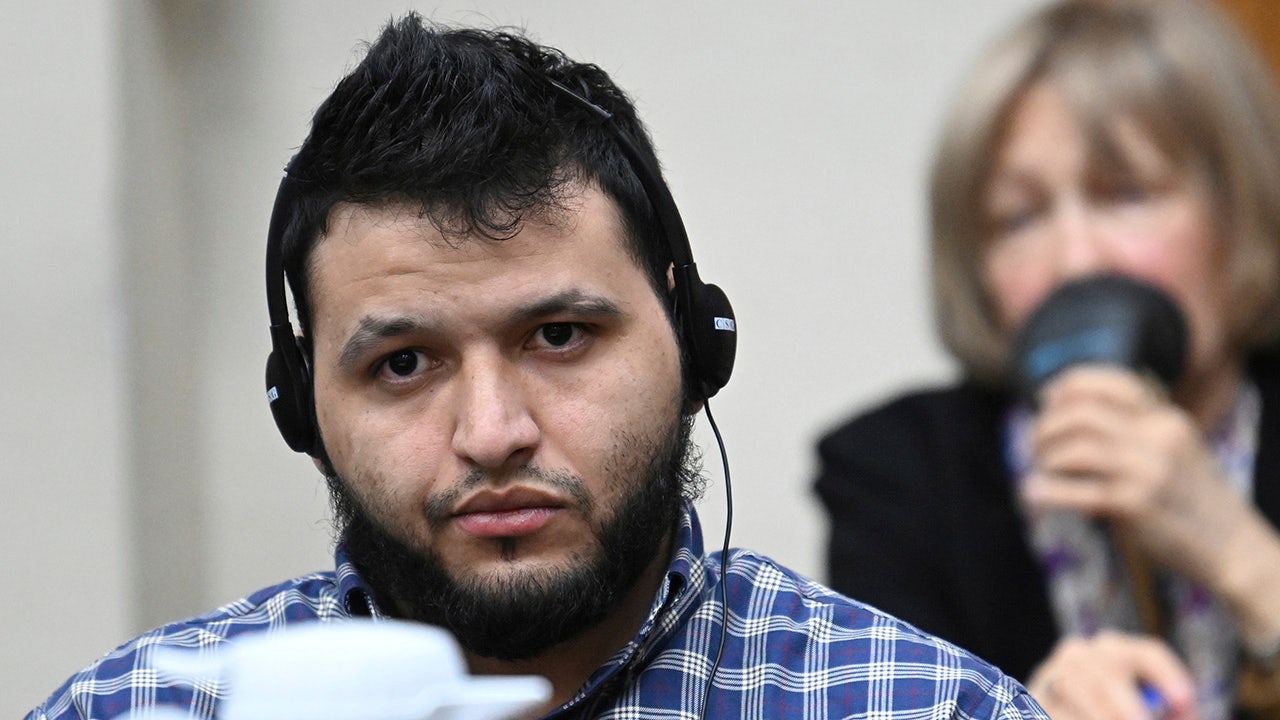A Canadian couple, who saved up to travel to Maui for a year, just returned this weekend after their honeymoon turned into a harrowing experience as wind-driven wildfires incinerated Lahaina and spots like Cheeseburger Paradise and the massive banyan tree now memorialized in their wedding anniversary album.
Yolanna Zlotnik, 30, and her husband Matt Barnsley, 32, sit touching on their couch in Ladner, B.C., about 25 kilometres south of Vancouver, fighting tears at the thought of all that’s now gone. They say they’re speaking out to raise awareness of what’s happened to people in Maui and are joining a growing chorus asking tourists to stay home and give the community time to recover from the apocalyptic fire.
Zlotnik says she feels relieved to be home but “just so much sadness.”
“These people were offering what they could to us, even though so many people and so many of those people had lost everything themselves,” she said.
WATCH | Honeymooners describe what they went through in Maui:
A B.C. couple honeymooning on Maui in Hawaii recount their fear and panic as they fled Lahaina last week, only to spend days stuck on a highway with thousands of others escaping the wildfire flames.
On Wednesday, the official death toll reached 99 people, but the grim number is expected to climb after an inferno that burned so hot it melted metal.
Thousands remain displaced, according to Maui county officials, citing figures from the Federal Emergency Management Agency and the Pacific Disaster Center.
Global Affairs Canada issued an advisory five days ago against non-essential travel to Maui. An email from the Global Affairs office today confirmed that 453 Canadians listed on the Registration of Canadians Abroad (ROCA) remain in Hawaii. But that number could be higher, as not everybody registers to travel.
Right now, Canada has no flights planned to return citizens to this country.
But others were already urging the world not to come, including Hawaii native actor Jason Momoa, 44, who has been outspoken about this on Instagram.
“Do not convince yourself that your presence is needed on an island that is suffering this deeply,” he posted.
Barnsley agrees with the actor and fights back tears recounting the stories other stranded people shared during encounters on a smoky, traffic-choked Lahaina Bypass highway where they were trapped in a sweltering rental car together for days with scant information as people tried to help each other out.
“People have lost everything — and it’s not a tourist place right now,” Barnsley told CBC Tuesday.

More than 1,000 people remain missing on the island of Maui in the wake of the devastating firestorm that hit the Lahaina town harbour — burning with such fury to the seashore — that many ended up trapped or leapt into the angry waves to try to survive.
The haunting viral image of ashen empty cars lining Lahaina’s main street gives the couple shivers.
They had driven Front Street hours before the fire overtook cars there and had even considered being forced to make the choice between Imminent flames — and the violent sea — still whipped by winds from passing Hurricane Dora.
“It was not a friendly sea,” said Zlotnik.
By late Tuesday, winds had driven flames seaward, turning everything in its path into a toxic dust. More than 2,200 buildings were damaged or destroyed in West Maui.
Maui County’s website has posted data estimating rebuilding at close to $ 6 billion, citing the University of Hawaii’s Pacific Disaster Center and the Federal Emergency Management Agency.

Uahikea Maile, an assistant professor of Indigenous politics in the department of political science at the University of Toronto, says many want recovery to take precedence over tourism.
“This week, the call from folks on the ground to those that have made plans to vacation in Hawaii or those that have second homes as vacation properties in Hawaii, to cancel their trips,” Maile said.
He believes now is a critical turning point for Maui to protect Hawaiian land from a “massive land grab,” as speculators have already begun making offers to people whose homes burned and rebuild money has been pouring in from billionaire celebrities like Jeff Bezos and Oprah Winfrey.
“They don’t need more tourists to visit Lahaina Town or Maui in general. And. It’s really critical that the resources of the state go to this particular effort and not to supporting tourism right now,” said Maile.
The long trip home
For Zlotnik and Barnsley, their Maui trip was perfect before things turned.
The day of the fire, they awoke to high winds. The power was out. So they headed out in T-shirts looking for coffee, oblivious to the impending danger.
They were eventually swept up in the mass of thousands of people trying to flee the area on the only highway, with no Internet or radio updates, terrified and reliant on rumours.

When they could, they got quick texts, including a rudimentary hand-drawn map, to their family to confirm they were safe.
‘Worse than we had ever imagined’
At one point, they drove to a hotel near the airport but found no rooms. The lobby filled up fast with others displaced by the inferno. When the couple offered their seat to a sobbing family with a small baby, they were shocked by the generous response.
Zlotnik described how one of the men in the family walked over and took the time to thank the B.C. couple for their kindness, even though he’d just watched his home be devoured by flames and was headed to a shelter.
“That’s when the news hit us that this was a lot worse than we had ever imagined,” she said.
The couple ended up back on the road stuck in their car for another 48 hours — using a local gas station for a washroom and thankful for supplies, like toilet paper and toothbrushes, offered by others.
At about 2 a.m. on Friday, they were able to get through a blockade and make a harrowing drive through darkness, glimpsing a charred landscape, downed power lines and military vehicles. Fearing looters, they hurried into their rental condo to retrieve belongings, including a laptop with Zlotnik’s master’s thesis material and precious photographs, then scrambled to get a flight home.

“It wasn’t until the next day that we realized that the reason we didn’t know where we were was because everything was gone, just flattened,” said Barnsley.
Zlotnik’s mother was able to book them a new return flight as, by then, they’d missed their pre-booked return on Aug. 10.
Air Canada told CBC, given the “devastating situation” in Maui, they will review the couple’s situation and try to apply a “goodwill policy” to make the loss of the plane ticket right.
Asked if they’d go back to Maui, Zlotnik pauses.
Despite loving Maui, she says this experience left her guilt-ridden.
“We know that they’re asking people not to come so that they have a chance to rebuild. So we very much respect that and would only return if they invited us back,” she said.















;Resize=(1180))

.png#keepProtocol)




Discussion about this post